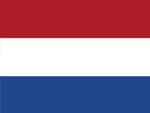 Dutch Learning Games
Dutch Learning Games
Dutch traces its origins to the Low Franconian dialects of Old Frankish, which were spoken in the Early Middle Ages along the coast of the North Sea in what is now the Netherlands, Belgium, and northern France. It evolved significantly over the centuries, developing into a distinct language by the 12th century.
Dutch played a crucial role during the Dutch Golden Age, a period of great cultural, scientific, and economic growth in the 17th century. The language spread far and wide due to the maritime and colonial activities of the Dutch during this era, leading to the creation of several daughter languages, including Afrikaans in South Africa.
One of the unique features of Dutch is its guttural G sound, which is quite distinctive among Germanic languages. The language has also absorbed words from French, Hebrew, and Indonesian due to historical trade and migration. An example of Dutch linguistic innovation is the word 'computer,' which is the same as in English, showcasing the language's tendency to adopt foreign terms. Additionally, Dutch is known for its compound words, forming new meanings by combining existing words, which adds to its lexical creativity. Its notable literary contributions, from medieval epic poetry to modern authors like Harry Mulisch and Cees Nooteboom, make Dutch a language rich in history and culture.
 Days of the Week in Dutch
Days of the Week in Dutch Vegetables in Dutch
Vegetables in Dutch Months in Dutch
Months in Dutch Kitchen Vocabulary in Dutch
Kitchen Vocabulary in Dutch Fruits in Dutch
Fruits in Dutch Food in Dutch
Food in Dutch Colors in Dutch
Colors in Dutch Clothes in Dutch
Clothes in Dutch Body Parts in Dutch
Body Parts in Dutch Animals in Dutch
Animals in Dutch Numbers 11-20 in Dutch
Numbers 11-20 in Dutch Numbers 1-10 in Dutch
Numbers 1-10 in Dutch